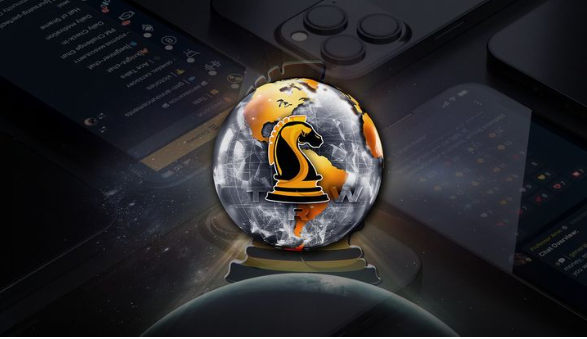In an increasingly digital and fast-paced global economy, the gap between traditional education and real-world demands is wider than ever. Conventional institutions, rooted in industrial-era thinking, still deliver theoretical, outdated curricula that often fail to equip students with the practical skills needed to thrive in today’s workforce. In contrast, The Real World, an online learning platform founded by entrepreneur Andrew Tate, is revolutionizing how education is delivered, accessed, and valued in the digital age.
Combining real-world application, direct mentorship, and a focus on financial independence, The Real World challenges conventional academia by offering what traditional schools rarely do: immediate, actionable skills designed to generate income and long-term self-reliance. This shift sets the stage to examine why current educational institutions struggle to keep pace with today’s demands.
The Problem with Traditional Education
For decades, education has followed a predictable path: attend school, go to university, obtain a degree, then enter the job market. However, this linear progression no longer guarantees success. Rising tuition costs, student debt, and underemployment among graduates reveal deep cracks in the traditional model.
Moreover, universities often lag behind the real world. While industries shift rapidly due to technology and globalization, curricula are slow to evolve. Students may graduate with degrees in business, finance, or marketing but lack hands-on experience, digital fluency, or the entrepreneurial mindset needed to compete.
This disconnect has created fertile ground for alternative models, especially those focused on practical, skills-based learning. Enter The Real World, which positions itself as a solution to this growing need.
What Is The Real World?
The Real World (TRW) is an online platform designed to equip individuals with high-income skills through direct, hands-on mentorship from practitioners with real-world success. With a growing global community and over 100,000 students in more than 100 countries, TRW operates as a digital campus, offering training in key areas such as:
- E-commerce
- Freelancing
- Copywriting
- Investing & Crypto
- Sales & Business Strategy
- Artificial Intelligence tools
- Personal finance and wealth-building
Unlike traditional educational platforms that rely on passive content consumption, The Real World emphasizes implementation over theory. Every course and mentorship track is geared toward producing tangible results, often within weeks of joining.
Key Features That Redefine Education
1. Skill-Centric Learning
At the core of The Real World is the belief that practical, monetizable skills are the foundation of personal freedom. The platform focuses on skills proven to generate income in the digital economy. Whether it’s building a dropshipping store, mastering persuasive writing, or closing high-ticket sales, the emphasis is always on execution and earning.
2. Real-World Mentors
One of TRW’s biggest differentiators is its teaching model. Courses are led by active professionals and entrepreneurs, not academics. These individuals have built successful businesses and continue to operate in the industries they teach. Their insights are based on current trends, tested strategies, and lived experience.
This model contrasts sharply with university professors who may teach outdated theory or lack real-world business experience. In TRW, learning is practical, fast-paced, and directly linked to outcomes.
3. Speed and Accessibility
Traditional degrees often require four years or more of study, plus tens of thousands in tuition. In contrast, TRW is affordable, time-efficient, and globally accessible. Students can begin learning immediately, and many report earning income within the first 30 to 90 days.
The platform is accessible via desktop and mobile devices, allowing students to learn and execute from anywhere in the world. This is ideal for digital nomads, working professionals, and aspiring entrepreneurs alike.
4. Community and Accountability
The Real World is built around an active global community of learners, mentors, and success coaches. Through its interactive chat system and student support channels, members stay connected, motivated, and accountable. This community-driven model adds peer support often missing in traditional online learning platforms.
By surrounding students with like-minded, success-oriented individuals, TRW fosters an environment where momentum builds and results become contagious. Economy Demands a New Kind of Education
The traditional employment landscape has shifted dramatically. Remote work, automation, and the rise of AI have disrupted conventional job roles, while new opportunities have emerged in content creation, affiliate marketing, crypto investing, and tech entrepreneurship.
Yet, most universities remain stuck in outdated paradigms, teaching subjects that have little relevance to today’s fastest-growing fields.
The Real World fills that gap
It provides students with direct access to emerging industries, teaches them how to build and monetize digital assets, and instills a strong emphasis on independence, critical thinking, and self-discipline. These are not just career skills; they are life skills for the 21st century.
A Focus on Self-Reliance and Financial Independence
Another defining characteristic of The Real World is its philosophy of empowerment. The platform’s core mission is to help individuals break free from economic dependence, whether on employers, governments, or institutions.
This philosophy resonates especially with young men and women who feel underserved by traditional education. TRW doesn’t just teach how to earn; it teaches how to think about money, time, freedom, and purpose.
In a world where financial literacy is rarely taught in schools, TRW offers something rare and valuable: a blueprint for financial sovereignty. But as with any innovative approach, it has also drawn criticism.
Addressing the Criticism
As with any disruptor, The Real World has faced criticism, primarily due to its association with founder Andrew Tate, whose outspoken views have generated controversy. However, separating brand persona from educational value is important.
The platform’s practical success stories speak for themselves. Thousands of students have launched businesses, left unfulfilling jobs, and built income streams thanks to the skills and mentorship received through TRW.
In contrast to many academic institutions where theory outweighs application, The Real World is unapologetically results-driven. This philosophy positions it as an example of a broader trend in education, one that favors practical outcomes over tradition.
The Future of Learning: Decentralized, Practical, and Empowering
The Real World is part of a larger trend that’s reshaping education across the globe. Learners today are seeking:
- Speed and relevance over theory
- Skills and income over grades and titles
- Mentorship and community over lectures and exams
TRW meets these needs head-on, offering a learning environment that is agile, practical, and responsive to the demands of the digital world. As trust in traditional institutions declines and digital-native learners seek faster, more personalized ways to learn and earn, platforms like The Real World are poised for greater prominence.
Conclusion
The Real World is more than an online learning platform; it marks a paradigm shift in how we think about education, work, and personal agency in the digital age. This perspective is crucial as we consider the evolving requirements of future learners.
The future of education demands flexibility, accessibility, and real results. As traditional models struggle to adapt, The Real World stands out as an effective, modern approach—focused on practical skills, empowerment, and real-world success in the digital economy.


